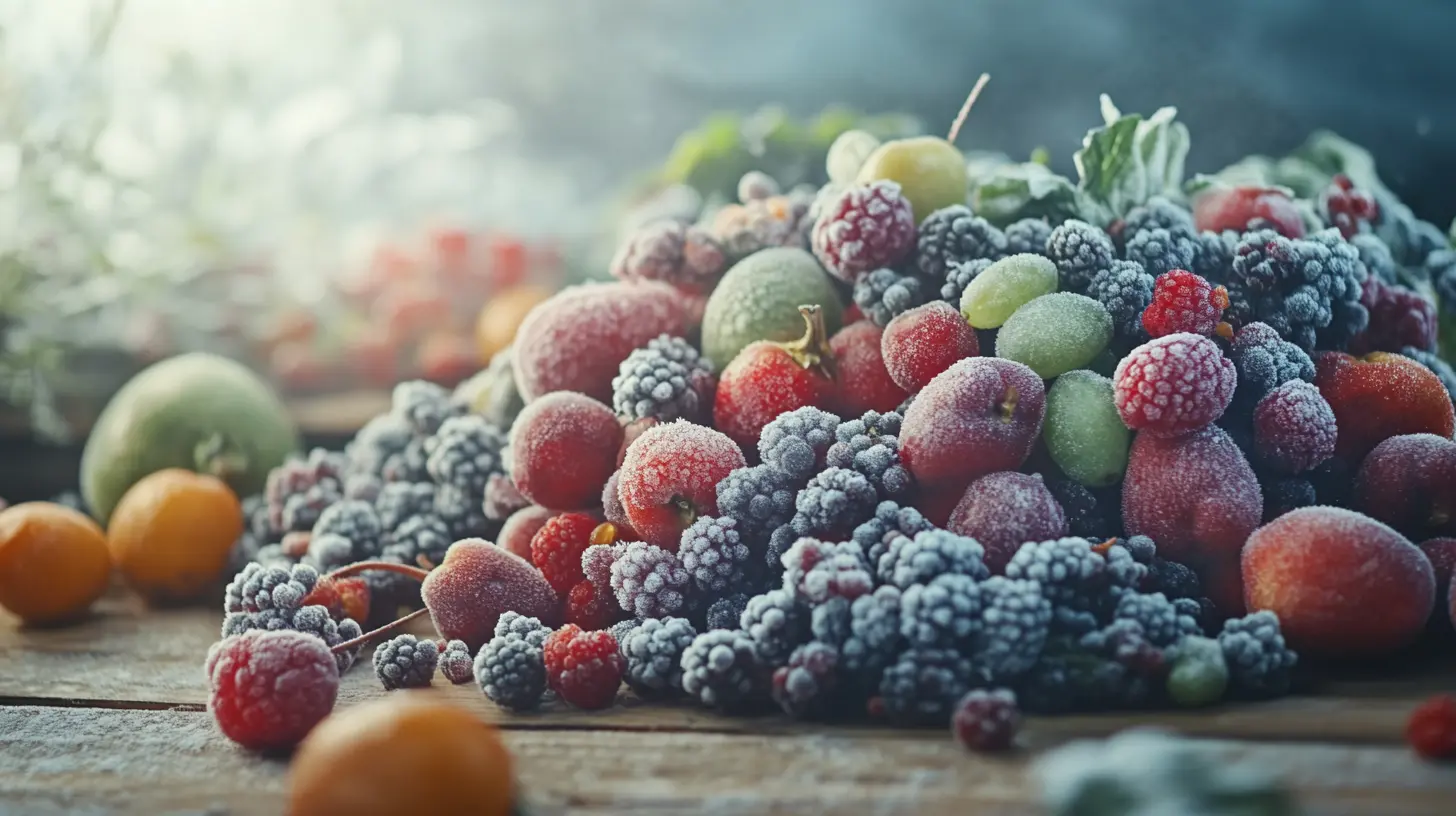
The Surprising Power of Frozen Fruits: Higher Antioxidants Levels Than Fresh
The choice between fresh and frozen produce often comes down to perceived quality and nutritional value, with fresh usually getting the nod for being the healthier option. However, scientific evidence suggests that frozen fruits and vegetables can be just as nutritious, if not more so, than their fresh counterparts. This article takes a deeper look at the benefits of including frozen produce in your diet, drawing on the latest research, including a significant study published in the Journal of Agricultural and Food Chemistry.
Understanding Flash Freezing
Flash freezing is not just a method of food preservation; it is a rapid process that locks in the freshness, texture, flavor, and most importantly, the nutrients of fruits and vegetables immediately after harvest. The speed of this process drastically reduces the formation of ice crystals, which are known to damage cellular material and lead to nutrient degradation. This method contrasts sharply with the natural enzymatic activities and gradual nutrient loss that occur in fresh produce from the moment it is picked to the time it reaches your dinner table.
Nutrient Comparison: Fresh vs. Frozen
Research consistently shows that the nutritional differences between fresh and frozen produce are minimal. A landmark study by Ali Bouzari and his team in 2015 found that certain frozen fruits and vegetables actually retained their vitamins better than fresh ones over time. For example, the levels of vitamin C, riboflavin, and alpha-tocopherol in some frozen items were found to exceed those in fresh samples stored for the same duration. These findings suggest that the degradation of nutrients in fresh produce can be more significant than previously thought, especially when storage and transport times are extended.
Expanding the Scope: Broader Dietary Implications
Incorporating frozen produce into meals can significantly enhance dietary variety, especially during off-season months when certain fruits and vegetables are not available fresh. Moreover, the convenience of frozen produce encourages higher consumption of fruits and vegetables, which aligns with dietary recommendations worldwide. Dietitians often advocate for including a variety of fruits and vegetables in the diet to benefit from a broader range of nutrients essential for health.
Economic and Practical Benefits
The affordability and shelf-stability of frozen fruits and vegetables make them an economical choice for many households. The longer shelf life reduces food waste, as consumers can use only what they need and store the rest for later use, without the pressure to use up fresh produce quickly before it spoils. Furthermore, the pre-washed and cut varieties of frozen produce save time and effort in meal preparation, making healthy eating more accessible and less labor-intensive.
Culinary Flexibility and Innovation
From a culinary perspective, frozen fruits and vegetables are incredibly versatile. They can be used in a myriad of dishes ranging from smoothies to stews, and from desserts to main courses, without the prep work required for fresh produce. Innovative chefs and home cooks alike are finding creative ways to incorporate frozen produce into their dishes, maintaining optimal flavor and texture. For example, frozen berries and fruits can be used in baking to add moisture and flavor, while frozen vegetables can be included in quick stir-fries or steamed as a healthy side dish.
Conclusion
The debate between fresh and frozen produce should not be about which is healthier but about how each can fit into our lifestyles and dietary habits. With minimal nutritional differences and substantial benefits in terms of cost, convenience, and waste reduction, frozen fruits and vegetables are a viable option for maintaining a healthy, balanced diet. Embracing both fresh and frozen produce can provide the maximum nutritional benefit and culinary versatility needed to meet dietary guidelines and personal taste preferences.
References
Bouzari, A., Holstege, D., & Barrett, D. M. (2015). Vitamin retention in eight fruits and vegetables: a comparison of refrigerated and frozen storage. Journal of Agricultural and Food Chemistry, 63(3), 957-962. DOI: 10.1021/jf5058793.